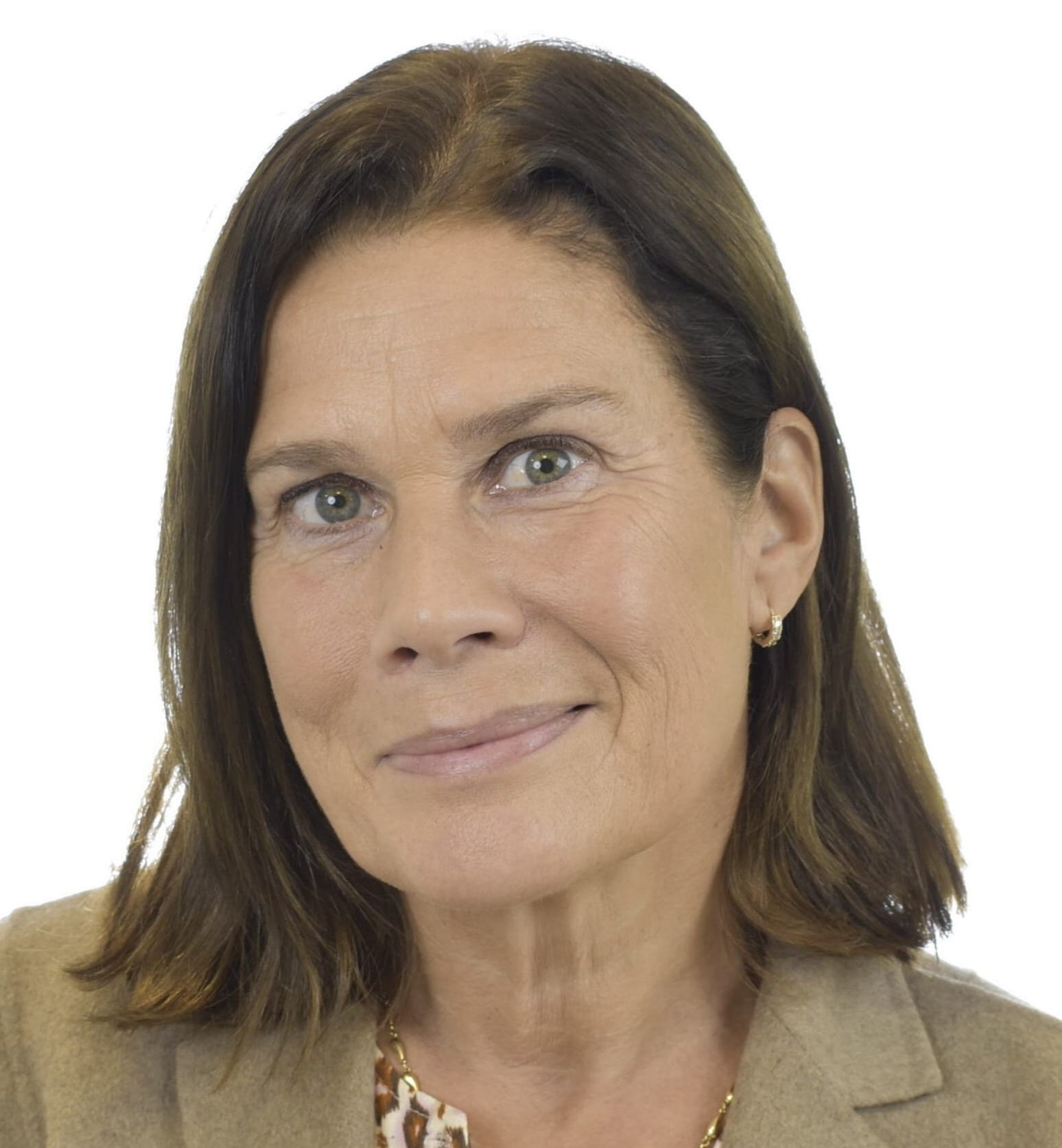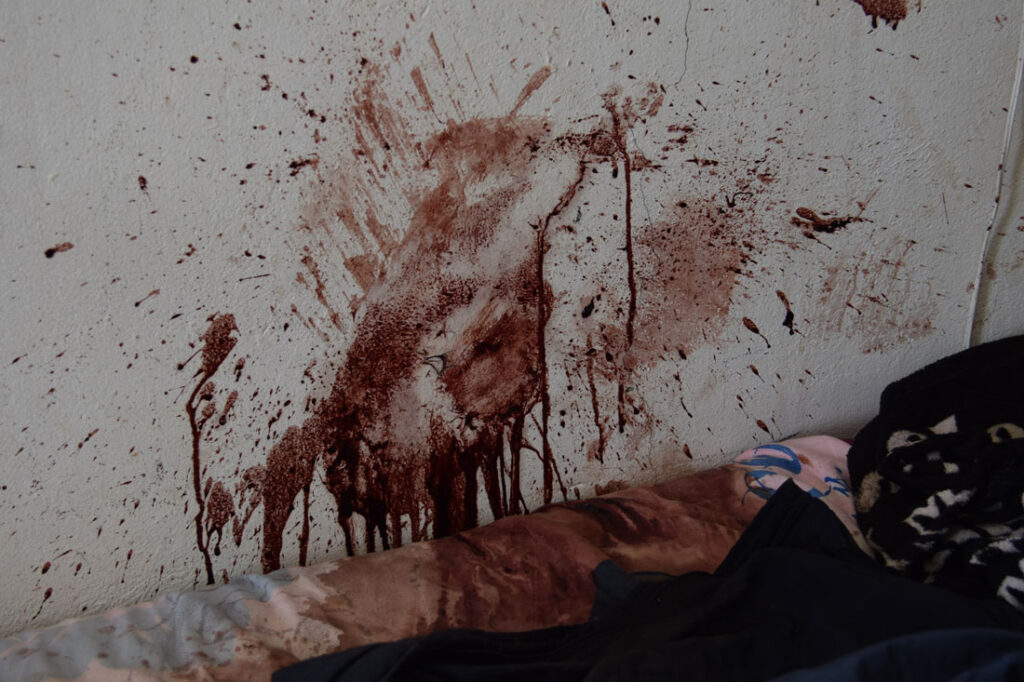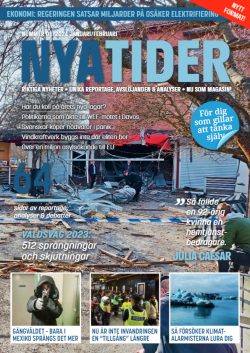The small room smells unmistakably of blood.
Four toasted sandwiches lie on the draining board, spread with butter and marmalade. But Monty McCormack, 73, and his nine year old granddaughter Kayla never got to eat them. Instead, the grandfather’s blood is smeared over the wall by Kayla’s bed, where he was bludgeoned to death with a crowbar. Dark blood stains the girl’s pillow, which depicts a scene from the Disney movie Frozen.
Kayla’s blood has been spilt in the storeroom next door, where her body was found. One of the blood stains is in the shape of a shoeprint on a pile of cement sacks. The girl probably resisted before she was strangled to death by the attackers, the family’s neighbours explain.
Kayla’s mom and dad − Kennith McCormack, 42 and Marietjie Meyer, 46 − were found about a hundred metres away, at the house they had almost finished building. Marietjie was beaten to death with a blunt object − most likely the hammer found next to her body, her neighbour says, as we stand next to the pool of blood she was found in. Kennith was killed with a spade, his body found in the undergrowth a stone’s throw from the house.
In many ways, the murder of the family is sickeningly familiar when compared to the stories we have heard from so many White farmers. Most strikingly, few, if any, valuables are missing, except for the family car which had been set on fire at Greenhills, some kilometres from the site of the murder. There is even some small change still lying on the bed where Monty was killed. It seems the attackers were driven by other motives than money. The ways of killing each victim rather indicates ice-cold hatred.
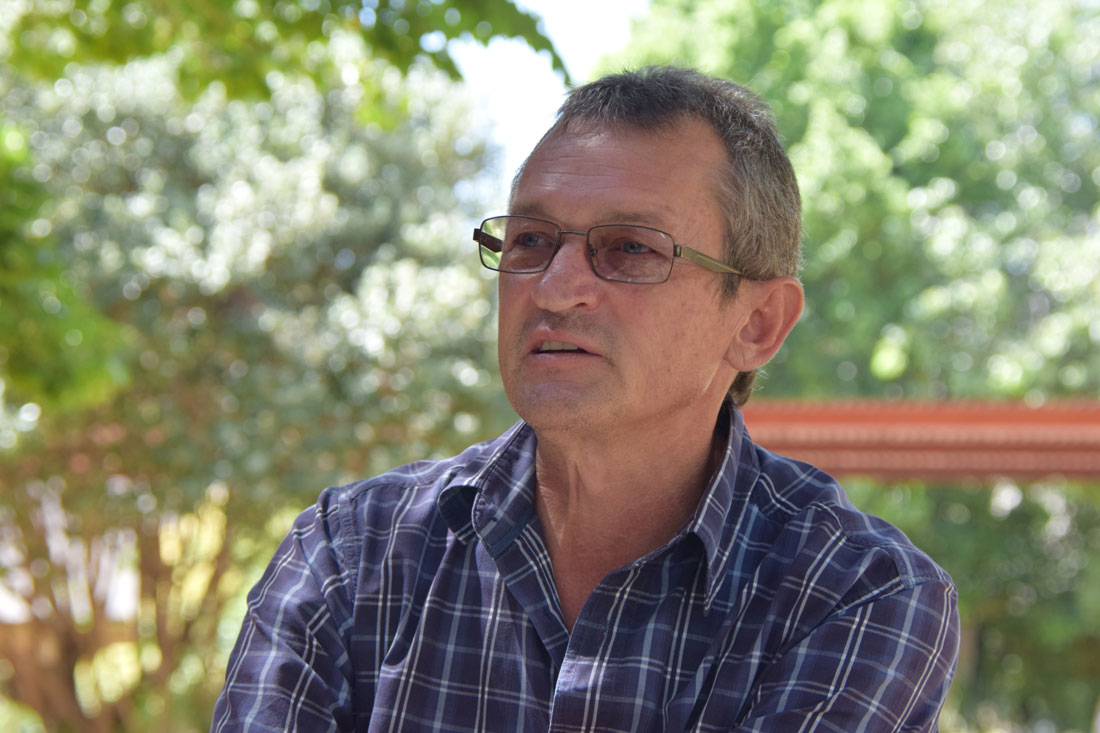


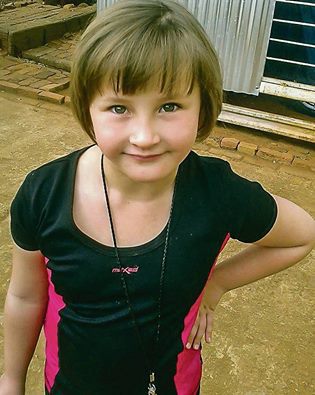
Racial motives aren’t acknowleged
The party line of the ruling ANC is that White farmers are exposed to attacks simply because they are generally wealthy; because the attackers want their money and valuables. But Kennith, Marietjie and Kayla were a poor family struggling to build a better future for themselves. Their Black neighbour, Sello Matume, 54, explains to us that he is the owner of the land which the White family was leasing. According to Matume, Kennith seemed somewhat desperate when he came to the neighbourhood of mostly Black smallholders last year to rent about a hectare of land, on which he wanted to build a house for his family.
− I saw that this guy is struggling. Wife lost her job, [and] he doesn’t have work [either], Sello Matume says to New Times.
Was Kennith forced to watch as the attackers killed his fiancée, as is so common in the South African farm murders? Why did the killers tie up little Kayla, only to then kill her? No one knows for sure − and as usual, there seems to be very little chance of the murderers ever being apprehended. The crime scene isn’t even cordoned off when we arrive, and the family’s two puppy dogs − which we can only hope the neighbours will look after − have free access to the room where Monty was beaten to death. An entire family has been brutally murdered in cold blood, and the police barely seems to care.
From both human rights activists and politicians, we learn that South Africa’s police force is thoroughly corrupt and incompetent, largely due to the huge numbers of low-qualified Blacks who have been steamrolled into the police force through racial quotas. Only a small fraction of murders in general, and farm murders in particular, are ever solved. Some of the people we speak to also allege that the police, in certain districts at least, are particularly disinclined to solve cases where the victims are White.
One example is Andry Louw, 53, owner of Andry Louw Motors in Pretoria, who has been burgled six times since December. At the latest break-in, a friend of his was badly injured by two attackers, who used a machete and another knife to cut and stab him before Andry could chase them away by firing several warning shots with his gun. When we speak to Andry a month later, the police have yet to either interview his attacked friend or do a crime scene investigation. Andry, on the other hand, has been questioned for the warning shots he fired, and almost had his gun confiscated despite the fact that it was probably the gun that saved their lives. In the end, he got to keep his gun. Nothing has been done to catch the attackers, however, in spite of Andry, by his own initiative, providing the police with pictures of the attackers’ faces from CCTV cameras.
− I don’t want to say it, but I think I must say it: I think it’s because I’m White, sighs Andry when we ask why the police seem not to care about solving the case.
There are many indications that racial motives are a frequent factor when White people are killed in South Africa, especially in the farm murders. The attackers seem more interested in terrorizing their victims than in robbing them of their valuables. Sometimes no valuables are even touched, other times they only steal mobile phones and guns. In some cases, the perpetrators themselves have stated to their victims that they aren’t out for money but for hurting and killing.
At some of the murders, the attackers also use skills and methods that suggest military training. Several of the South Africans we’ve interviewed tell of their suspicions that parts of the ruling ANC’s armed branch, Umkhonto we sizwe − “Spear of the nation” − could still be secretly active, training killers to drive the Whites off their land. There is no hard evidence of this, however, and despite urgings from farmers, organizations and activists, the government refuses to launch a proper investigation into the motives and methods behind the farm attacks.
The multiple murder of Kennith, Marietjie, Kayla and Monty in Randfontein doesn’t exactly raise a huge ruckus, either. When the New Times team arrives at the murder scene, there has only been a short article in the local newspaper, and we are the first journalists to visit the site itself. Only two days later, after our photographs have gone somewhat viral on Facebook and the human rights organization PRAAG has written about it, the local press wakes up and starts writing more extensively about it.
In the national press, the murder of four people barely gets a mention. In South Africa, this is just another murder case.

Just an ordinary, race-motivated multiple murder
− The farmers live in fear, because being a farmer in South Africa is the most dangerous occupation in the world, says Henk van de Graaf, Assistant General Manager and spokesman for the TAU-SA, Transvaal Agricultural Union, an organization representing commercial farmers in South Africa.
− The average murder ratio per 100,000 or the population in the world is 9, I believe. In South Africa, it is 54. But for the farming community it is 138, which is the highest for any occupation in the world, van de Graaf explains.
These numbers are necessarily conservative estimates. The statistics of the SAPS, the South African Police Service, are all but useless − the police force being inefficient, corrupt and in the hands of the ruling party, which has a vested interest in manipulating the numbers to make them look less awful than they really are. On directives from the government, police authorities also refuse to release any data which breaks down criminals and crime victims based on their racial or tribal affinities. Estimates from several organizations, including the monitoring group Genocide Watch, claim that at least 70,000 White South Africans have been killed since 1990. Around one million of the country’s White inhabitants, estimated at roughly 5,5 million when the ANC took power in 1994, have fled for other countries.
The situation for the White farmers is even worse and has been called a genocide by some. Of the approximately 80,000 farmers in the country in 1990, many estimates claim that between 3,000 and 4,000 have been murdered. The TAU-SA, however, prefers to keep their lists of victims restricted to those they can name, and for certain say were counted as farmers and killed in a farm attack. On those lists, as of mid-March 2016, are the names of 1,086 murdered White farmers and 442 of their close relatives, as well as smaller numbers of workers, visitors and Black farmers.
Many feared that Nelson Mandela’s death in 2013 would be the starting point for an ethnic cleansing against Whites by militant Black activists. Fortunately, these fears were never realized, but van de Graaf says the farm attacks did increase.
− The attacks certainly have increased after Mandela died. The trend is quite clear, says van de Graaf.
In 2015, there were 318 farm attacks resulting in 64 deaths, as far as TAU-SA’s meticulously kept records tell. To put these numbers in perspective, since there are only around 35,000 White farmers left in South Africa today, you can imagine living in a smallish town with a population of around 28,000 (in Sweden, for instance, Varberg or Åkersberga) that was being plagued with five brutally violent home intrusions resulting in approximately one death − each week. All of these attacks, furthermore, being directed at innocent families: mothers, fathers, children, the elderly. That is today’s gruesome reality for South Africa’s White farming communities.
The TAU-SA also believes that there is some organized force behind a part of the farm attacks.
− In some of the few cases where there was a successful prosecution, we saw that the trace could be followed back from, for instance, Potgietersrus in the Limpopo province to Soweto which is some 300 kilometres away. The attackers were guys from Soweto or Mamelodi or some of those places. And they attacked with some sort of military precision. So we believe that there is some force behind this. Who it is, we don’t know, because the police don’t want to investigate that. We’ve asked for a special investigation into this, to investigate what is behind the farm attacks. but the police stick to their story, that those farm attacks are just ordinary crime, Henk van de Graaf explains.
Van de Graaf tells us that the attackers in some cases have waited for the farmer family, who are usually devout Christians, to go to church on Sunday. Then they have broken into the house, loading all valuables onto a car. But instead of driving off with the loot, they have waited for the family to return.
− Then they have been tortured for hours with hot irons, women getting raped and so on, and then they have been killed. That is not “ordinary crime”! If you want the TV. you take it and then you leave. Why wait for people to come home only to torture and murder them?

“This is our land, too”
The White minorities of South Africa are today under severe pressure. Aggressive Black activists are using slogans like “Fuck White people” and “Kill all Whites” more and more frequently. Lately, such phrases have even been making inroads at universities, where Black students have been wearing them on t-shirts and spray painting them on walls. Activists have also been tearing down statues which for White students are a celebration of their historical heroes, but which the growing Black socialist party Economic Freedom Fighters (EFF) say remind Blacks of apartheid and therefore have to go.
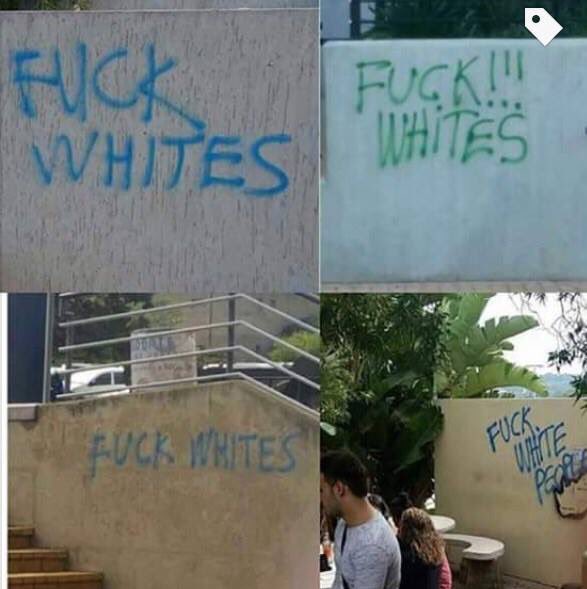
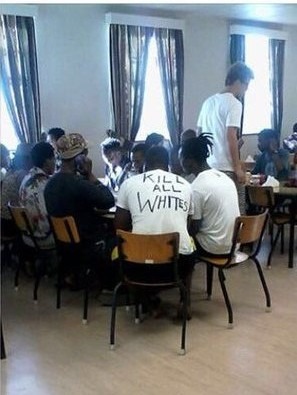

A sister of a murdered Boer woman who was interviewed by New Times said that the local ANC representatives even blame the frequent power failures and brownouts on the White apartheid rule before 1994, because the generator in the district’s power station was installed during apartheid rule and is now frequently failing.
− Shouldn’t they consider changing the generator instead, 22 years after the ANC took over? Not everything is White people’s fault, you know. Yes, we’ve made mistakes, but we’ve done good things as well. If it wasn’t for us, there’d be no generator to begin with.
Many White South Africans have lost hope and are thinking of leaving the country they once built. But many also display a will to resist. Businessman André van der Berg, 44, who was stabbed and cut with a machete during the aforementioned break-in and has his left hand in plaster during our interview with him − it was nearly severed in the attack − believes that many Whites will be ready to fight for their homeland if they are pushed far enough.

− This is our land, too, says Mr van der Berg. We have no other homeland than South Africa. All we want is to live in peace and for everyone to cooperate, but if they drive us towards civil war, they will regret it. White people pay 90 percent of the taxes in this country, so what do you think would happen if we stop paying taxes? We do still have some power here, if we decide to use it.




